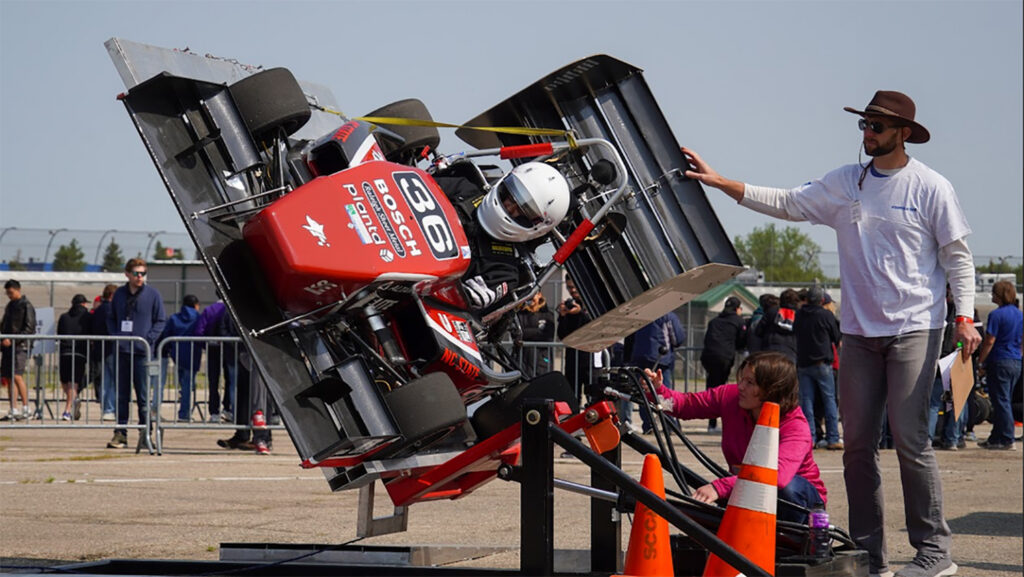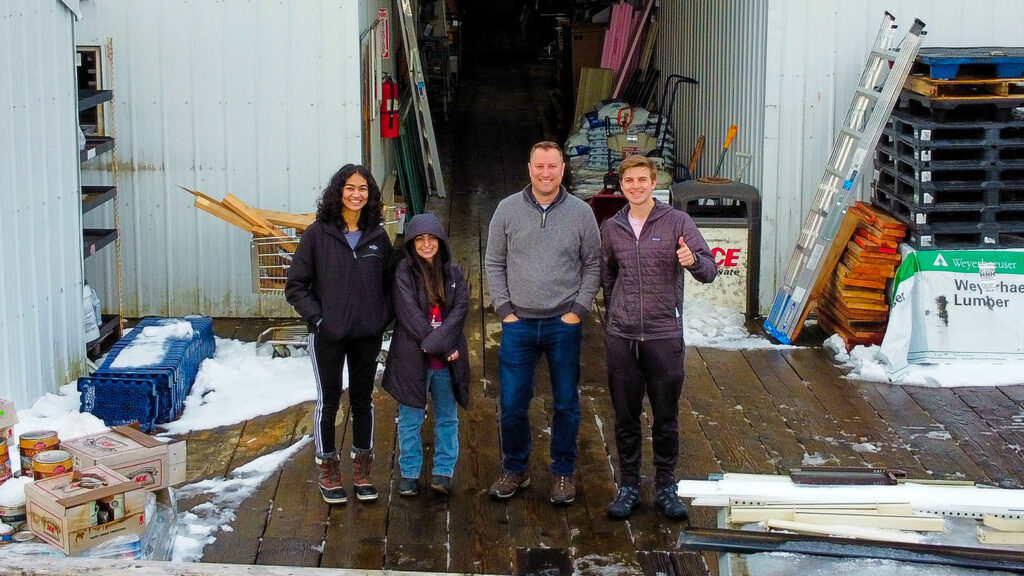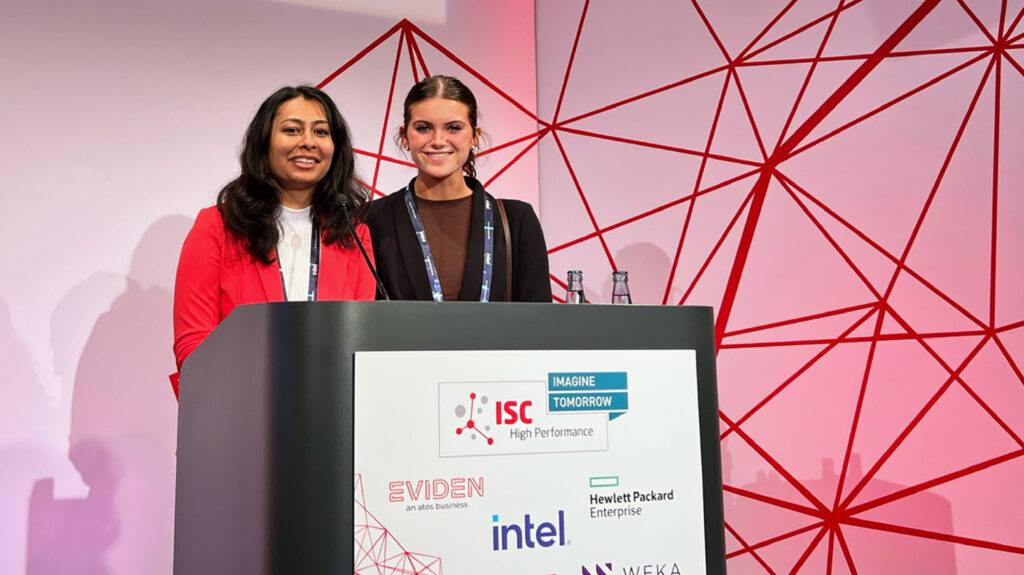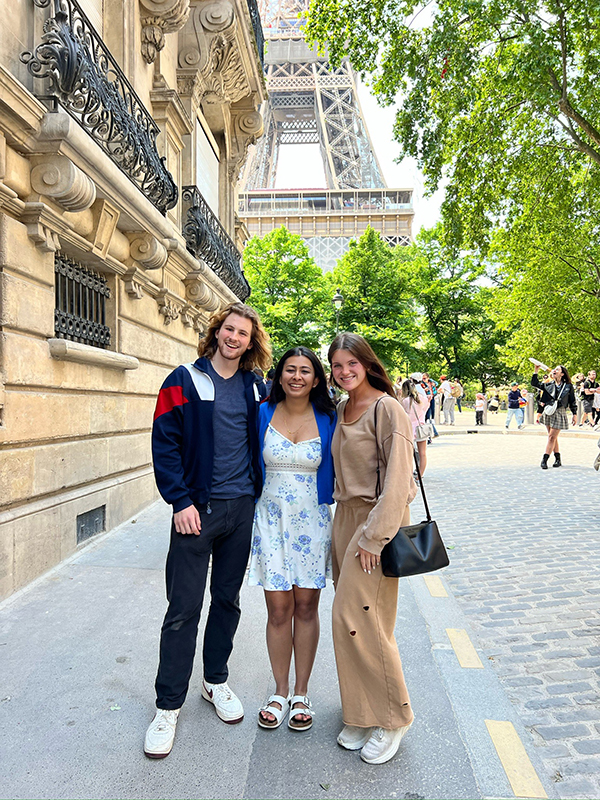Engineer your experience
Through the Engineer Your Experience (EYE) Program, undergraduate engineering students can make opportunities their realities. EYE funding supports study abroad, professional development, conferences and workshops, service trips, technical certifications and more. Since 2019, 3,369 students have received support from EYE. Last year, the EYE Program spent just over $1 million, the highest amount to date.
The application process starts each semester on the first day of classes. For more information, contact Shelly Hoover-Plonk, the program coordinator, at engrfundrequest@ncsu.edu and check out go.ncsu.edu/eye.
“We are proud to see the number of students taking advantage each year,” Hoover-Plonk said. “The EYE Program is meant to support undergraduate engineering students to take advantage of these various high-impact experiences for professional growth while they are at NC State.”
Traveling as a pack

In May, EYE covered hotel expenses for the Formula SAE team’s four-day competition in Michigan. Formula SAE is an intense time commitment for students. They build a car from scratch each year, and then race it. Having support from EYE frees up funds for other needs, like fuel and parts for their car.
“It’s like a full time job, especially in the leadership positions,” said Scott Davis, a senior mechanical engineering major and co-captain of the team. “There’s a lot of jobs in the industry that you can really only get by doing Formula SAE.”
“I love making stuff, and I’ve learned so much,” said Eve Frazier, a junior computer science major and the team’s manufacturing lead. “Also at the competition, whenever the car is running for the first time, the sound of the engine — I think everybody on the team gets a giddy feeling.”
Cultural exchange in Alaska

Shaun Deardorff, a senior majoring in aerospace engineering, has been to Alaska four times over the past several semesters because of the friends he made during his alternative spring break trip that EYE funded in March 2022. He traveled to a small village called Hoonah, a primarily native Tlingit community in Alaska where NC State has had an ongoing relationship for over 20 years. Along with other students, Deardorff taught art classes at the local school and encouraged students to consider higher education and careers in STEM.
Deardorff has returned to visit friends, who have taken him crabbing, seal hunting and swimming with humpback whales as well as shared traditional stories and ceremonial garments.

“It was very reciprocal,” he said. “We were there helping the school, but they also helped us a lot. We learned more about the beautiful Tlingit culture, and it was a really unique and profound exchange of ideas and service.”
Quantum computing abroad

As outreach chair of the Quantum Computing Club last year, Hannah Braswell wanted to find a conference to help club members make connections and learn more about how quantum computing is becoming more involved with data analytics, AI and machine learning. Braswell, who is a junior majoring in electrical and computer engineering, landed on the International Supercomputing Conference (ISC) 2023 in Hamburg, Germany. She applied for EYE funding to help offset the costs. As a member of the EYE student advisory committee, Braswell encourages all undergraduate students to use the program.
“EYE has so many capabilities for funding that people are so unaware of,” she said. “Funding flights and hotels was one of the most resourceful things in the world.”

Braswell attended with two other club members, who were among the few undergraduate students there. They made sure to put themselves out there and talk to as many people as they could, learning about both academia and industry while also getting to do some traveling in Europe.